Care Experienced
double Olympian Fatima
Whitbread celebrates at the Carelidh with us as she travels the country promoting Fatima’s UK Campaign – p6-7.


S RIGHT R E N E L G I FOR












Care Experienced
double Olympian Fatima
Whitbread celebrates at the Carelidh with us as she travels the country promoting Fatima’s UK Campaign – p6-7.


S RIGHT R E N E L G I FOR













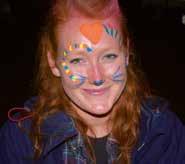

Scan this QR code if you would like to see a digital copy of this SpeakOut or check out our library of older issues, right back to




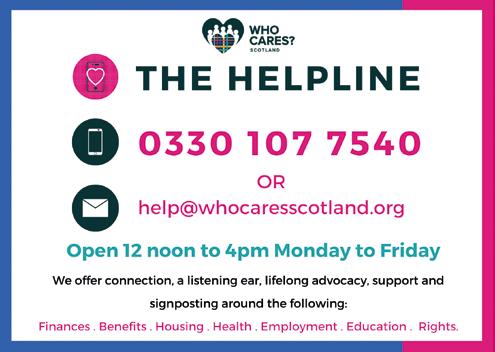
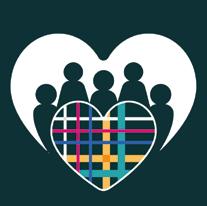

In a world of voices, where words collide, I yearn to be heard, to have my truth reside.
But the noise grows louder, drowning my plea, As if my thoughts were lost in a vast sea.
I speak my heart’s desires, my hopes and fears,
But they dissipate like whispers, falling on deaf ears. I wonder, do my words hold any weight?
Or are they destined to fade, unnoticed, in this debate?
Yet still, I persist, for my voice has worth, Even if it goes unnoticed, buried beneath the earth.
For within these words lies strength and might, A beacon of truth, shining through the darkest night.
So I’ll keep speaking, with unwavering conviction, Knowing that my words hold power, despite their seeming friction. For even if they’re not heard in this very moment, They’ll echo through time, leaving an eternal imprint.
So let your voice soar, my friend, don’t be deterred, For even if it feels like your words go unheard, Know that they matter, they have the power to ignite, And someday, they’ll find their way to the hearts that take flight.

Bethany has also painted this beautiful feature wall in her home. Bethany’s residential workers wanted to share how proud they all are of Bethany, and thank her for her hard work and celebrate her creativity!
e love hearing from our members, below is an email and photo sent in by Angie, with Angie’s permission we wanted to share it with you.
Hello,
I am a new member of Who Cares? Scotland. I am a bit different in that my care experience started in the early 1970s. I am so fascinated and overwhelmed by the support you have made available to the young Care Experienced people today. As a teenager there was nothing and the stigma was so hard to live with. My story is long and traumatic, but I have worked hard to get to this place in my life. I work for a children’s charity which I love. Here is a picture taken in Tenterfield House about 1975. Me and my sister, I’ve changed a bit since then.
Thank you for reading my email. Look forward to seeing what happens next with Who Cares? Scotland. I would love to get involved.
Regards Angie Davey

If you’re interested in getting more involved with us, have a look at the calendar on our website which will show you all our upcoming events and opportunities –from volunteering to vacancies, groups to galas – there’s something for everyone.


Austin designed a game based on his DVD collection, including some of his favourites, places he can purchase DVDs from, places he can watch films and some snacks that he recommends for movie watching. He likes that the staff here help him with his savings and support him to go to shops and add to his collection.
Leland has turned a ‘drab’ room into a cool room – his room here is his sanctuary he loves having all his cool lights, posters, and his collections.
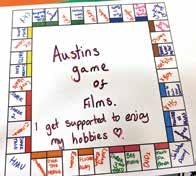
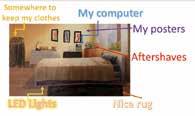
The LED lights around his bed and all the way around his room are particularly cool. He feels safe and happy here.


At a North Lanarkshire Children’s House –Austin, Leland, JJ and Holly all got creative while celebrating Care Day back in February.
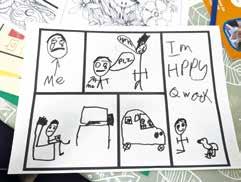
JJ’s Comic Strip is about being listened to: 1st box he is sad as he does not have a duck, 2nd box he is asking staff for a pet duck, 3rd box he is researching ducks, 4th box he is being supported to get this duck, 5th box he is happy as he has a pet duck.
Holly baked some cakes and said she enjoys trying new things and learning to be independent.

Care Day was a day of celebration and solidarity, shining a light on the experiences and voices of young people in care. I had the honour of kickstarting the day with a heartfelt welcome speech that not only echoed our collective journey but also paved the way for a day filled with meaningful discussions.
The highlight for me was bridging the gap between young individuals and Corporate Parents, as I presented some questions that sparked an honest exchange of thoughts and ideas. It was a day of empowerment, of being heard, and of sowing seeds for a future where every voice holds the power to effect change!
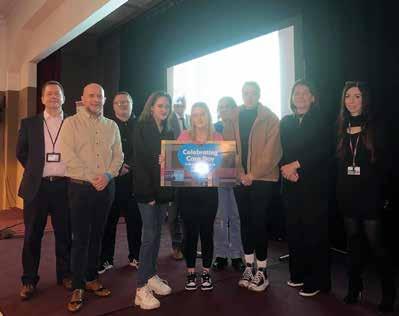
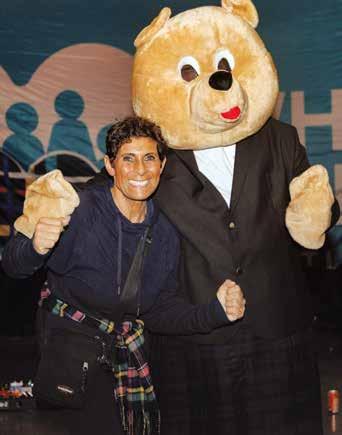
In February, award winning, Care Experienced, Olympian Fatima Whitbread, MBE came along to our Carelidh to celebrate Care Day 2024. We managed to grab a quick chat with her about care, her past, and her own movement, Fatima’s UK Campaign.
How did you hear about Who Cares? Scotland?
I was with the advisory group, as a member of the John Lewis partnership, and was invited to come to the Communities That Care Conference in 2023. I’ve been following Who Cares? Scotland ever since. It’s in alignment with what I feel and being in the care system myself for 14 years, it was quite close to my heart. So that’s why I like to support people where I can.
What made you want to represent the Care Experienced community?
As a Care Experienced person myself, I’ve been an advocate for children for a long time and noticed that not a lot has changed in 60 years. Many people, good people, are working on the ground floor level, but they’re scattered all over the place. I’m trying to rejuvenate the care system sector by using my lived experience and my platform to bring awareness and education and to try and get rid of the stigma which comes with living in the care system.
For me, it’s all about building nicer, happier lives, better communities and a kinder
society. For the children, it’s a must to have early intervention from a very young age, to build better foundations for them, and improve their life outcomes. By not serving a good purpose, sometimes the care system impacts young people in a negative way. I think we need to change that.
What was it like growing up?
I was terrified from the age of eleven. I started getting worried because I didn’t get on very well with people in the children’s home. I used to look after the youngsters, and calling out injustice didn’t make me very popular; they couldn’t wait to get rid of me! That’s what happens when you’re Care Experienced; you’re constantly fighting for your rights, and you become a little bit feistier. You don’t take ‘no’ for an answer, you like to call people out.
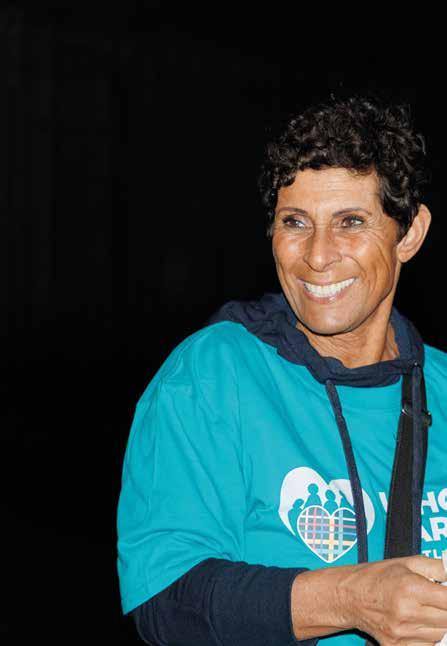

It was tough for all the kids. There were, like, 25 children in our first home and nobody ever really sat down and told us what happened to Mum or Dad. When I went to a second children’s home, there were 14 children. It’s very difficult with a smaller residential; you’ve got a double whammy of emotional trauma going on, so you’re constantly in a sea of emotion. It’s very hard to get above that. You may get up feeling quite well one day, looking forward to doing something at school or whatever, and then there’s somebody else in the home who’s crying and it just like sets you off.

When did you realise that you wanted to help other Care Experienced children? Was there a turning point when you were growing up?
Auntie Rae. She would come in and look after the children. I called her the tickle monster because I used to hide under the bed sheets in the morning and I wouldn’t want to get up until she woke me up and she’d tickle me, and I’d know that the day had begun.
One day I asked her if she would be my mummy, and
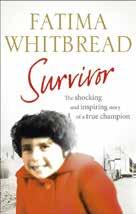

Have you seen any changes?
she took me aside and said no, she had to be mummy to all of the other children too. She told me that she wasn’t always going to be there, but I could be there for the others when she’s not. That was a major game changer for me. It taught me that in giving, you receive. If I looked after the other children, calling out any injustice and giving them the love and support they need, they would give it back.
Tell us about Fatimas UK Campaign.
Part of Fatima’s UK Campaign is to work collaboratively with ministers; with people both in and outside of the care system who want to help on the ground level, as well as in business; there are lots of opportunities in the Business Sector.
We want to make sure that from the minute a child comes into care, they know that there’s an infrastructure that serves them properly and that when they’re out of care it stays, and that it helps them beyond that. Make sure that it’s not just survival that these kids are going to have to learn, it’s also the opportunity to thrive as well. Yeah, I guess it’s a very big challenge, but at the same time, I always like a challenge.
*GIVEAWAY*
People are starting to talk more amongst themselves – ‘What can we do to help?’. And this is important; it’s all about education and bringing it into the modern world. Make sure that these kids are no longer invisible.
We don’t want kids being moved, because what they need is stability. They need continuity. They don’t need to keep being moved around and shunted about. I mean, losing your family is bad enough, let alone being taken away from everyone, your school, your mates. Your education is being affected because the curriculum is different in different parts of the country. And generally, they need stability and having positive people that stay in their lives, that can help guide them as role models when they need them.
That’s what it is about, really, continuity. They need that in their life.
Why did you start using your platform to speak about the care system?
I feel that I can get the message out there; it’s harder to get people to listen and support you when you don’t have the media or a larger following behind you. Talking about my early days is quite empowering and it also empowers others to come forward and talk about theirs.
I think by collaboratively doing that, we can achieve a lot more.
We have a copy of ‘Survivor: The Shocking And Inspiring Story Of A True Champion’ by Fatima Whitbread to give away. Send us a DM if you’d like to be in with a chance of winning!
Hi, I’m Millicent and I’m a 3rd-year student at the University of Stirling. In my spare time, I am a human rights consultant for the Scottish Human Rights Commission and a youth advisor to the House of Lords inquiry into the transition from education to employment for neurodivergent and disabled people. I am most notably recognised for my recent achievement becoming a finalist at the Undergraduate of the Year Awards for a second year running. I responded to an ad from Who Cares? Scotland to write a piece about International Women’s Day. You can find an extended version with links to all the organisations mentioned on the Who Cares? Scotland website! #IWD2024
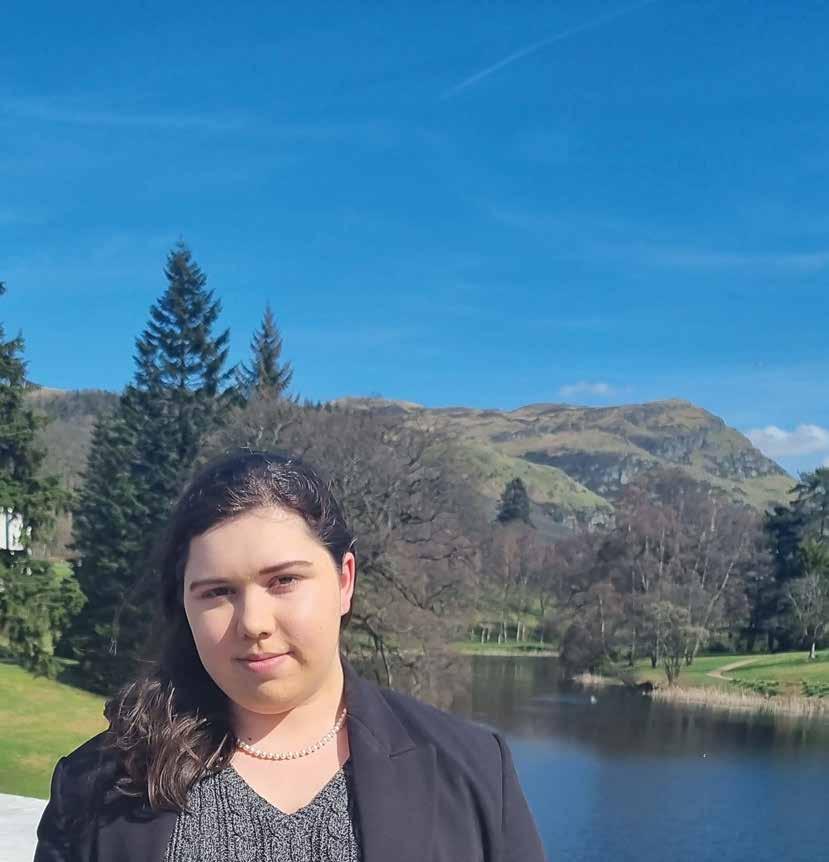
International Women’s Day (IWD), celebrated on March 8th, is a day to celebrate the achievements of women and girls globally. But for Care Experienced women, it can also be a time to reflect on our unique experiences and the powerful Care Experienced women in the feminist movement who can inspire us. The theme for IWD 2024 was Inspiring Inclusion. This means:
“When we inspire others to understand and value women’s inclusion, we forge a better world.” Women who have experienced care often come from marginalised backgrounds marked by economic, social, and cultural inequalities. Additionally, they may face further challenges due to their gender, such as discrimination, stereotyping, and limited opportunities to access education, employment, and healthcare. These factors can significantly impact Care Experienced women’s lives, including their mental and physical health, relationships, and sense of identity and belonging. It is essential to acknowledge and address the unique challenges faced by Care Experienced women to support their well-being and promote social justice and equality for all.
For those who grew up in the care system, life can be particularly challenging, and for women, the journey can be even more complex. This is due to a range of factors, including gender-based vulnerabilities; they may be more susceptible to abuse and exploitation, both within the care system and outside of it. Disrupted identity development where the challenges of navigating the care system can make it harder for them to form a secure sense of self and limited support networks, as leaving the system often means leaving behind the only support network they’ve known, leading to feelings of isolation and vulnerability. These combined factors contribute to a unique set of challenges that young women who
grew up in care must navigate, making their journey toward independence and well-being even more demanding.
In addition to these difficulties, Care Experienced women may face additional challenges in areas such as education, employment, and housing, where gender inequality can further disadvantage them. This can lead to further struggles in achieving their goals and living a fulfilled life. It is essential to recognise these challenges and work towards creating a system that provides equal opportunities for all individuals, regardless of their background or gender.
To help combat some of these issues, particularly loneliness and access to education and employment, the Unite Foundation created the online All of Us community for Care Experienced and estranged young people across the UK, where I worked as a Community Relations Manager and founded the All of Us employability group, which I still run voluntarily, supporting over 840 members of the Care Experienced community from across the UK. It is a beautiful, inclusive, and supportive community that understands each other from shared and similar lived experiences, and I highly recommend joining and connecting as the Sounding Board who help with the development of the community, are planning more local in-person events.
International Women’s Day is not only a day to recognise the achievements of women, but it is also a day to celebrate their strength and resilience. Women who have experienced care have overcome significant obstacles and demonstrate remarkable resourcefulness. The feminist movement serves as a reminder that we are not alone and can inspire us to continue to fight for equality and justice. Despite adversity, Care Experienced women are survivors who have navigated a challenging system and emerged stronger. Some of the most inspirational people for me have been other Care Experienced women.
I recall sitting in parliament in Edinburgh listening to the evidence session for The Promise Review. Writing notes, seated amongst the others who had the privilege to have been invited, some of whom I had met and heard the stories of their resilience before, stories that reminded me why I invest so much time into supporting the Care Experienced community. I was reminded of a quote someone once said to me,
sometimes the most ordinary of people is where you will find the most inspiration”.
Those people inspire me to persevere in influencing change within the Care Experienced community.
There are different strands of feminism, each with its own focus. Some feminists emphasise intersectionality, acknowledging that various forms of oppression – like sexism, poverty, and racism – can overlap and affect us in different ways. As Care Experienced women, we bring a unique perspective to the movement. We can share our stories and advocate for policies that address the specific needs of women in care.
But International Women’s Day isn’t just about external forces. It’s also a day to celebrate ourselves, our achievements, and the fantastic women around us. Think about the women who supported you in care, maybe a social worker, a care worker, or another female Care Experienced friend. It wasn’t until I did the #IAmRemarkable session last summer that I became comfortable celebrating my own achievements. The #IAmRemarkable session is a workshop designed to empower individuals, particularly those from underrepresented groups, to celebrate their achievements and develop selfpromotion skills. It addresses the challenges many face in discussing their accomplishments, particularly in professional settings.
#IAMREMARK

Let’s embrace the inclusion of women, not only on IWD but every day. Let’s continue to fight for a world where all women can thrive, regardless of their background. Let’s also celebrate the strength and resilience that defines Care Experienced women.
Remember, you are not alone. You are part of a powerful sisterhood and we can create a brighter future together.
February marked LGBT+ History Month, which has been celebrated globally since 2005 to reclaim the past, celebrate the present, and create a more inclusive future. We put a call out to our members to share their reflections on LGBT+ History Month.
Here, Milo writes about their emotional journey to find their place as a disabled, LGBTQ+ person with care experience against a backdrop of religious doctrine.
Trigger Warning: This piece describes difficult feelings and includes references to conversion therapy.
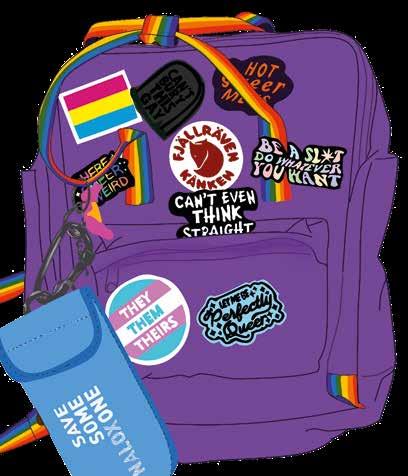
“No sorry we can’t take her” echoed through the hollow corridors of the foster care system, a chilling refrain that became the anthem of rejection for a disabled child like me. At the tender age of 12, I stumbled into the labyrinth of Scottish foster care, unwittingly embarking on a harrowing odyssey marked by darkness, rejection, and a relentless search for identity.
As well as navigating the complexities of foster care, where stability and acceptance seemed elusive, I found myself grappling with the discovery of my LGBTQ+ status. It was a time of swirling emotions and internal turmoil as I began to understand my attraction to both girls and boys.
This was further obscured by my placement in a fervently religious home where prayers sought to exorcise the demons of my LGBTQ+ identity.
With the weight of conflicting emotions and societal scorn, I felt trapped in a muddle of self-loathing and despair.
The process of coming to terms with my identity was fraught with uncertainty and fear, especially given the societal and religious contexts within which I found myself. The weight of my truth felt heavy, as I wrestled with questions of acceptance and belonging. When I mustered the courage to confide in my then foster parents, their reaction only added layers to the complexity of my journey. Their prayers seeking to expel what they perceived as demons, cast a shadow over my burgeoning self-acceptance. Instead of finding solace and
understanding, I was met with an attempt to suppress and erase a fundamental aspect of who I am. The intersection of my LGBTQ+ identity and the religious beliefs of my foster parents created a clash of values and ideologies that left me feeling isolated and misunderstood.
The prayers offered over me were not just words; they carried the weight of societal expectations and religious doctrine, seeking to mould me into someone I was not. At that moment, against the echoes of whispered prayers, I felt the weight of shame and rejection press down upon me, threatening to suffocate the spark of authenticity that flickered within.
Despite the feelings of rejection and misunderstanding, there remained a glimmer of defiance that refused to be extinguished.
My journey of self-discovery continued, fuelled by an unwavering determination to embrace my truth, despite the barriers that stood in my way.
A testament to the resilience of the human spirit and my enduring quest for authenticity and acceptance.
The transition into foster care initiated a cycle of displacement. Over three tumultuous years, I was flung between 6 placements and a group home, each transition shrouded in uncertainty and dread. The instability took its toll, leading me into the cold embrace of psychiatric hospitals, where the darkness of my emotional adversaries mirrored the chaos of my external reality.
A teenager burdened by poor mental health and disability; I became an outcast in the eyes of prospective foster parents. Rejection became my unwelcome companion, a constant reminder of my perceived
Conversion therapy is any intervention that seeks to change a person’s sexual orientation or gender identity. It is a practice that has been present in societies across the world for hundreds of years and although progress has been made to stop it, it is still legal in the United Kingdom.
Practices include:
• pseudo-scientific counselling sessions
• being induced to ingest “purifying” substances
• being prayed over as a form of “healing” and exorcisms
inadequacies. The void of isolation swallowed me whole, leaving behind a hollow shell of fear and loneliness. Trust proved to be a fleeting illusion, shattered by the jagged edges of betrayal and deceit. Among peers, confidences were bartered like currency, leaving scars that festered long after the wounds had healed. At 16, I returned to the home of my birth parents—a reunion marked by echoes of distrust, where lingering trauma cast a pall over the fragile semblance of our reconciliation.
Now, at 22, my journey continues. I find relief in counselling, as I confront the ghosts of my past and chart a path toward healing and self-discovery.
Among the painful memories of my time in care, one stands out like a beacon of humiliation: the sight of my meagre belongings stuffed into bin bags as I prepared for school camp. The shame washed over me like a tidal wave. While my peers flaunted shiny new rucksacks, symbols of belonging and acceptance, I stood alone with my tattered bin bag, a stark reminder of my outsider status. I now possess something I once deemed unattainable—a rucksack of my own, a symbol of resilience and the fulfilment of a childhood longing. But most important is the patch I have on my rucksack. The trans flag with my pronouns they/them/theirs in clear bold writing. In its simplicity, I feel the promise of a better tomorrow, where I am seen.
A new job with charity, Talk, Listen, Change offers a glimmer of hope, as I strive to carve out a place for myself in the world by helping others like me. I have a warm, safe bed to sleep in, a sanctuary amidst life’s storms. And in the company of friends who offer unwavering support, I find strength to face the challenges ahead.
The Scottish Government just finished a consultation period that looks to ban the practice. You can read the full consultation here: https://www.gov.scot/publications/ ending-conversion-practicesscotland-scottish-governmentconsultation/
There’s more information and support on this topic on the Stonewall and Mermaids websites, as well as suggestions for campaigning against conversion therapy.


This year we’ve launched our #Care2Dare fundraising campaign, which encourages people to take on a daring personal challenge to raise money in support of Care Experienced people and the work of Who Cares? Scotland. As part of this we are hosting events including Bungee jumps, marathons and Firewalks.
The first Firewalk of the year took place the day before Care Day, on Thursday 15th February, and thanks to our work with John Lewis, ex-world record-holding javelin thrower Fatima Whitbread travelled up from London to take part in the Firewalk and celebrate with us at the Carelidh the following day. Fatima herself is Care Experienced and is passionate about helping the Care Experienced community.
Speaking about taking part in the Firewalk, Fatima said: “I am delighted to join my friends Who Cares? Scotland to support the wonderful work they’re doing for [Care Experienced] people.
It’s so important that we all work together to help make a difference and raise vital funds which can change lives.
On the day, over 20 supporters came together at the G7 Conference Centre in Glasgow to brave the coals. After a session explaining the logistics and preparing mentally, they all stepped out into the flame-lit night and took their turns oneby-one walking across the burning embers. Chants of support rang out amongst the group as they each completed the challenge more than once. We got some amazing photos and a few videos from the event!
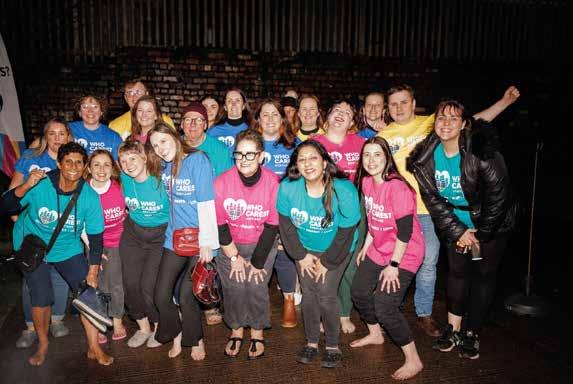
Did you know?
The Firewalk is carried out on flaming pieces of a specific type of wood instead of coal because the burning point of coal is too high for the body to handle?

It ended up being a great night and it was fantastic having a Care Experienced person like Fatima coming along and getting involved for the community. Our CEO Louise said: “We at Who Cares? Scotland would like to give a huge thank you to Fatima. It’s truly amazing to have a Care Experienced person of Fatima’s standing showing such commitment to our movement. Efforts like Fatima’s go a long way to ensuring we can continue to recognise and celebrate Care Experienced people in Scotland and across the world through events like Care Day.”
The event was also a huge success, raising over £6,000 to support our work!
Thanks to this success, we’re delighted to share that we’re hosting another later in the year in October. Are you or do you know anyone interested in taking on the challenge? Check out our website for more info!
2024 marked Who Cares?
Scotland’s 7th annual Carelidh, where members come together to celebrate Care Day with traditional Scottish dancing, great food and being around Care Experienced people from across Scotland. The Carelidh is a time of joy, reflection, and family.
This year the Carelidh took place in Glasgow at The Engine Works and one of my highlights was the vibrant decorations adorning the venue, creating an atmosphere of warmth and festivity. Colourful lights spread cheer and delight. As I walked through the bustling rooms, I couldn’t help but feel a sense of excitement building within me.
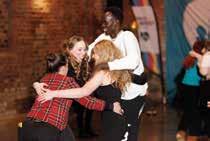
The night was electric from the moment people started arriving and as the music kicked off, our members flooded the dance floor. I found myself swept away by the rhythmic beats of the drums and the infectious energy of the dancers, losing myself in the joyous celebration unfolding around me.
During the Carelidh if you weren’t dancing your socks off there was the chance to get your face painted, temporary tattoos (that my
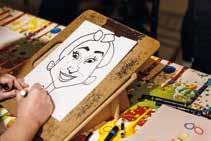
3-year-old niece enjoyed since she came away with two full sleeves), get a caricature done and even get photos at the photo booth.
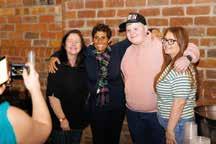
This year we got to celebrate alongside Fatima Whitbread MBE, who is a passionate advocate for the community and has her own Fatima’s UK Campaign, which has the mission to protect and support vulnerable children and young people. During the celebration, members danced alongside Fatima and taught her traditional ceilidh dancing, they also took photos and asked about her experience on ‘I’m a Celebrity, Get Me Out of Here’.
But beyond the grand festivities, it was the smaller moments that truly made this year’s Carelidh memorable for me. Sharing laughter and stories with friends and family, indulging in delicious festive treats, and taking a moment to appreciate the simple joys of life – these were the moments that filled my heart with happiness and

As the festivities drew to a close and the last echoes of music faded into the night, I found myself reflecting on the true essence of the Carelidh – a time to come together, to celebrate our shared humanity, and to embrace the promise of the future with open hearts and minds. Though the event may be over for another year, the memories and moments shared during this year will stay with me forever, reminding me of the power of community and the beauty of tradition.

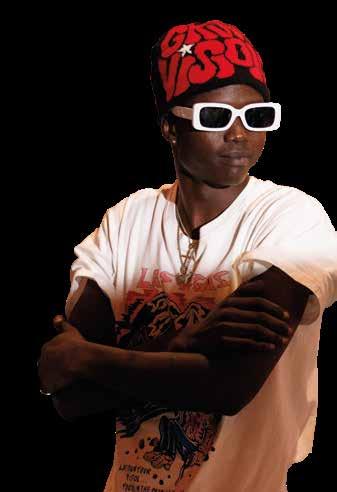


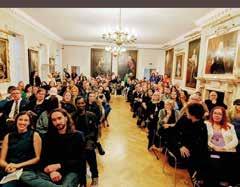
I’ve been pretty vocal about my care experience for some time, so when I saw Rebekah Pierre’s callout for submissions to be collected in a new anthology of Care Experienced voices, I thought it was a great opportunity. I’d never really written anything before, but I’ve been a fan of Care Experienced poet Lemn Sissay for years. His work - along with knowing that the book had a no-rejection policy, meaning that no submission would be turned away - inspired me to write.
My poem reflects the frustration I’ve felt being Care Experienced and the stigma we face in a lot of ways.
I wanted to express a message that was more positive and reflective of all the incredible Care Experienced people I’ve ever met - rather than the negative statistics we’re so often told.
I came up with “What If We Were Told New Stories?” and sent it off just before the deadline. I had regular updates from Rebekah and the book’s publishers, and about two years later, after an incredibly successful crowdfunding campaign, the book was in my hands.
It’s an emotional read. Some stories are moving, and some come with content warnings, so it’s not an easy read at times. But it’s all from the heart. I can’t really describe what it means to have my poem published alongside over 100 Care Experienced authors sharing their stories. It almost feels like a family project. When I received it, I spent most of the day just flicking through different parts and taking it in.
I genuinely believe everyone who works with people in care should read it - it shows the reality of how care feels for us.
About a week or so after I received my copy, I was invited to the book launch at the Foundling Museum in London to read my poem. I was incredibly nervous since I’d never done anything like it before. A piece of my heart is in that poem - I wasn’t sure if I could do it justice. Beforehand though, Rebekah suggested that the
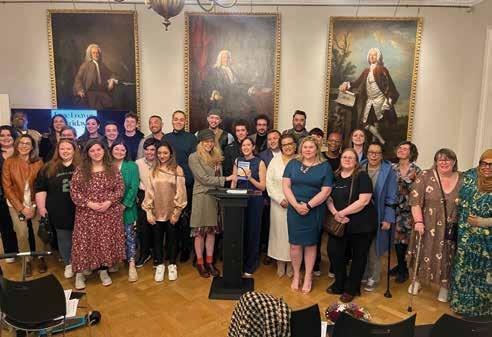
room would be invited to join me in saying the last line of the poem, “We’re changing the story of care.” Knowing the room would be reading along with me and shouting my words back gave me such a wave of confidence. At the event, I also had the opportunity to meet other Care Experienced authors and activists, some that I’ve known for years but never been able to meet in person. I was incredibly grateful for that, it was like being joined by friends and family.
I’ve been amazed at the response to it all so far. It gives me hope that the book can ignite conversations where Care Experienced people are represented, and most importantly that those stories are told authentically - by us.
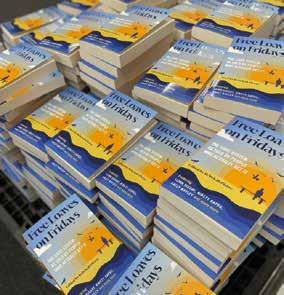
We’re told we’re disruptors. Interrupters. Aggressive, dismissive, Protestors. Complete nutters.
We’re told we’re complicated. Irresponsible, inept, failures. Not Tolerated.
Reduced to a statistic. Antagonistic. A line within a file in a database, Redacted to leave no trace.
We’re told it in bleak corporate Doublespeak.
Policies and Care Plans, We’re too young to understand.
We’re told we’re ‘looked after’, When the system’s a disaster, And your opinions don’t matter. Heart shattered. Siblings scattered. What if we were told new stories?
If you would like to be in with a chance of winning a copy of ‘Free Loaves on Fridays’, email us at membership@ whocaresscotland.org or message us on social media.
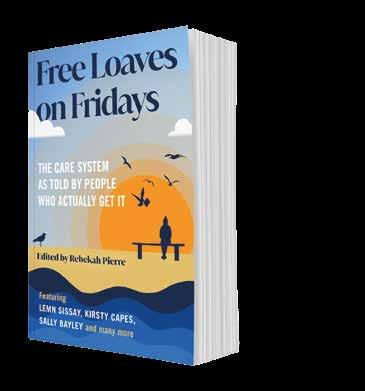
We’re visionaries. No longer denied Opportunities.
We’re circuit breakers. Generational Trauma healers. Leaders. Healers and teachers and dreamers.
We’re revolutionaries. Powerful and loud so you won’t Forget us. You better hear us. Believe us. There’s hope in the air, tearing Barriers Apart. And this is just the start.
We’re changing the story of care.
My name is Christina, I am a third-year marketing student at Glasgow Caledonian University, and have been doing my work experience placement at Who Cares? Scotland. I was placed with the Policy and Public Affairs Team to put my university knowledge into practice and was tasked with assisting on Care Experienced History Month. As someone who is Care Experienced myself, I had not heard about Care Experienced History Month, here’s what I learnt about the history of Scotland’s care system… Historically, Care Experienced people were placed into large orphanages or workhouses, were ‘boarded out’ to different families, were adopted and some were even sent across the world. They were often made to work at young ages, and never saw their birth families again.
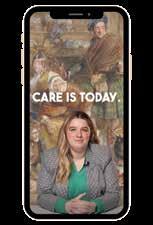
To educate the people of Scotland and ensure we never forget these stories, the month of April celebrates Care Experienced History Month.
This year Who Cares? Scotland members Leah, Billy, Rebecca, and Charlie worked with academics to research specific parts of Care Experienced history and then they created a TikTok series to share their learning in a fun and engaging way.

Rebecca kicked off the TikTok series with how the care system came about. Rebecca shared that in the 1800s Scotland was experiencing peak levels of poverty, and this led to children whose families couldn’t afford to look after them being placed in poorhouses. A poorhouse is where individuals worked and in exchange were offered meals and somewhere to live which seemed like a better alternative to being on the streets, however, Rebecca goes on to explore poorhouse conditions which were really not very nice. Further into this series, Rebecca shares how children were “boarded out” of the city into the countryside. They were forcefully removed from their families to go and live with another family and in most cases were not returned. This shocking part of history was the point where the government introduced the welfare state.



Then Leah worked with Dr Robin Sen to deliver the second series about the child migration scheme in Scotland. She discusses the UK’s agreement with Australia and Canada to ship children abroad to new institutions. Leah shares this part of history that involved cruelty, lies, and deceit about those young people sent abroad through the scheme. Most never saw their families again. Leah ends this series explaining the importance of remembering this history and the accountability of those involved to make sure future young people are protected and shows a clip of Gordon Brown’s apology in 2010 on behalf of the British Government to all who were affected by the scheme.

who is this?
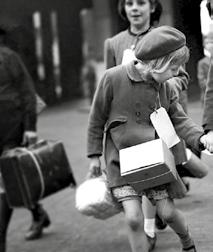
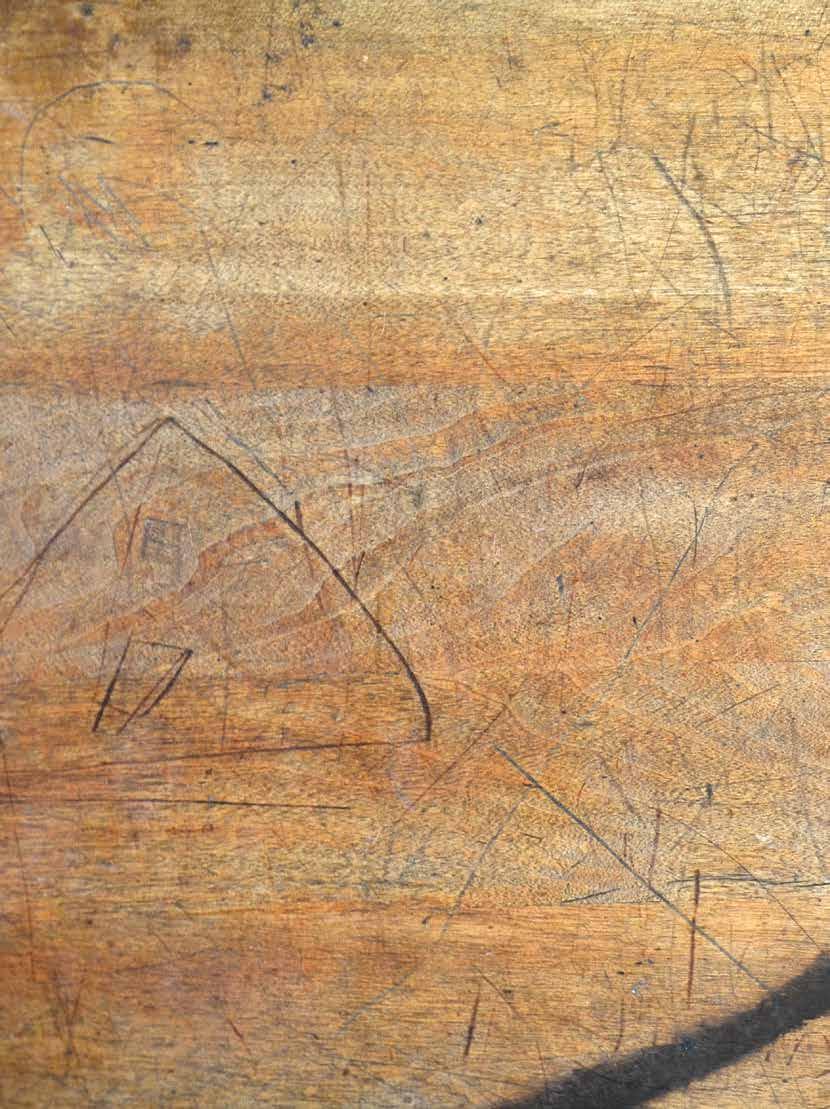


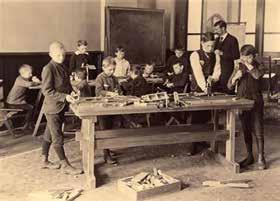
Billy worked with Dr Christine Whyte to produce the next series on Industrial Schools. This is a part of history many people may have not known. Billy shares with us the history of industrial schools, these were schools where young people were placed and worked long hours. They were intended to stop young people from committing crimes such as stealing food. At these schools, young people would learn discipline and practical skill sets such as tailoring, woodwork, and joinery. However, Billy goes on to discuss the poor living conditions they encountered such as cramped living areas, which allowed illnesses to spread rapidly. Those in industrial schools were subjected to gendered stereotypes when it came to preparing them for working life. Boys were expected to be
“We are sorry they were allowed to be sent away at the time when they were most vulnerable. We are sorry that instead of caring for them, this country turned its back.”
Gordon Brown



the man of the house; therefore, they worked on tailoring or carpentry. Meanwhile, the girls were prepared to be housewives or mothers, learning cooking, laundry, and repairing clothes.
Billy goes on to discuss the HMS Mars ship, which was supposed to be an industrial school that sailed the sea, however, the young people onboard were not treated like humans and lived in prison-like conditions, including having their names changed to numbers and their heads shaved.
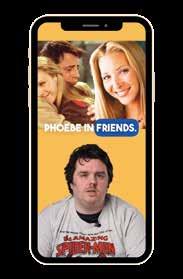


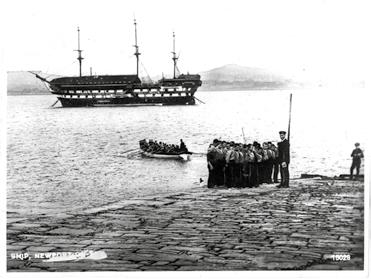
Charlie’s TikTok series highlights wellknown film and TV characters we all love, who you may not have realised were Care Experienced. Annie may be the world’s most famous orphan and we instantly recognise her storyline, but did you know Harry Potter, Superman, and Spiderman were also Care Experienced? Well, I didn’t until I heard what Charlie had to say and it clicked. Charlie goes on to talk more about Care Experienced representation and what it has created in the minds of the public who consume these stereotypes. What we see in films and shows is not the reality for young people in care and Charlie expresses why representation matters – so Care Experienced people can see their stories being told without them reinforcing damaging stereotypes.
It has been a pleasure to watch and learn myself, I have learned so much. If you have not seen the series yet, head over to the Who Cares? Scotland TikTok and get watching because you are missing out!


For the past 14 years, Who Cares? Scotland has been sending Care Experienced young people to attend summer school at one of the worlds most esteemed universities. Each year, our successful applicants make their way across the pond, from Scotland to Harvard University in Boston, Massachusetts for a summer they’ll never forget.

Meet this year’s lucky four; Abbie McMahon, Skye Hume, Ibrasheel Abbott, and Kyle Lyon. We caught up with them on the lead up to their trip!
Kyle, you’re going to Harvard! How does that make you feel?
It’s really exciting. I was so surprised when I found out I was going; I never really expected it to be honest! We’re excited for you! Which two courses have you chosen to study while you’re there, and why?
I’m going to study Organismic Biology, and Basic Japanese. I chose Biology because I just really want to do something in terms of science, and since I couldn’t do two science related courses, I decided that it’d be quite cool to learn a bit of basic Japanese. I just really like the language and, well, it’s an aspiration of mine to go to Japan at some point.
Amazing. And what are your plans after Harvard, when you’re back in Scotland?
I would like to study Biochemistry at the University of Glasgow, so this will really help with that. Then I’ll go
and work in a lab, or keep studying; maybe go on and do a Masters or a PhD. Science is a really interesting topic for me, and there’s a wide range of things I can do after graduating. I’d love to become a Biochemist. That’s really interesting. What else are you looking forward to seeing and doing while you’re in America?
I really want to go to some baseball games; I’d like to see the Red Sox.
If there’s any opportunity to play chess around Harvard, I’d love to try that. Chess is one of my hobbies. I play it online and have an intermediate rating. It’s competitive, but also quite relaxing. Playing in Harvard would be amazing.

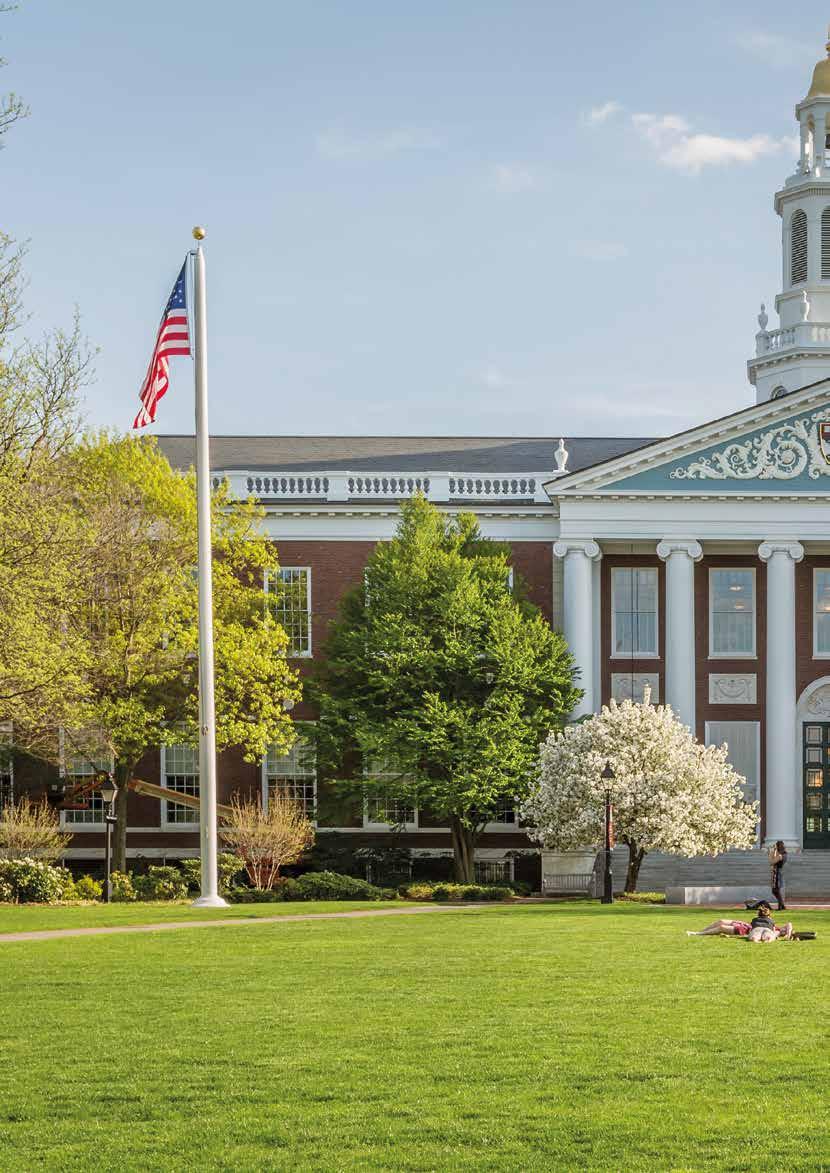
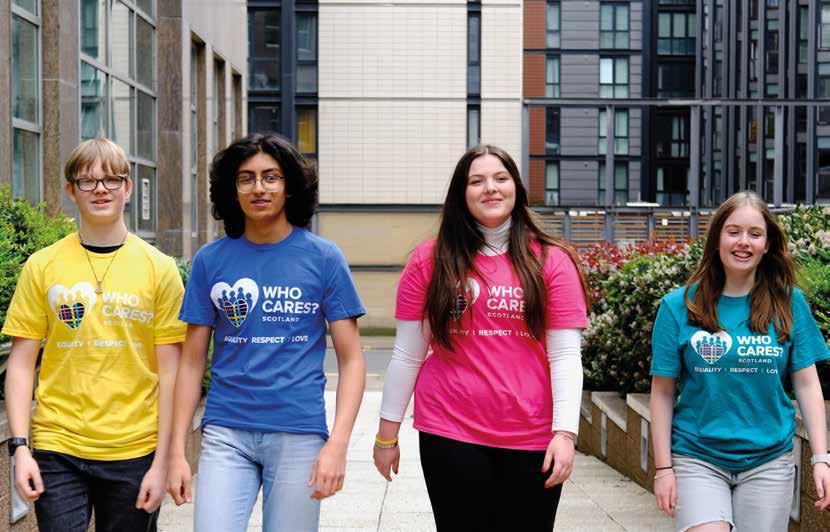

Hi Abbie! What made you apply for the Harvard Summer School?
I applied because it’s a great opportunity. I thought I probably wouldn’t get it! I’m actually in shock, I don’t think I’ve fully processed it yet; I’m really excited and nervous! Harvard just reminds me of movies. What courses have you chosen to study while you’re there?
I’ve chosen Creative Writing; Beginning Fiction because I really enjoy reading and writing. I’ve chosen a language course too; Italian. I study French at school just now, but I want to try a different language. Good choices! And after Harvard, what are your plans? Is it writing that you’re interested in pursuing, or something else?

Hi Ibrasheel! So, how does it feel to know that you’re going to Harvard this Summer?
I don’t really know… I don’t really think it’s sunken in yet. I’m getting congratulated by folk and people say “Oh, you’re that Harvard boy.” It’s all a bit surreal. It’ll all sink in when you get there! What two courses have you chosen to study?
At first, I picked two physics subjects, but I’m going to change one of them to language. Either Japanese or Italian, I think. I already know people who are taking them.
No, I’d actually like to be a nurse; it’s what I’ll apply to do when I start to look into going to university.
That’s interesting; what’s made you want to be a nurse?
Well, when I was younger, and my Nana was in hospital, she used to always talk about how the nurses would joke around with her, and how she always had such a nice time when the nurses were there.
I’d like to have that kind of impact on someone.
That’s
really lovely. Thanks Abbie!
Wow! And you’ve switched your second course to study a language at Harvard? Do you speak any other languages currently?
I can speak Urdu, and a lot of Urdu literature is incredible.
I know Punjabi and, Hindi as well. I was thinking about teaching myself Arabic. Arabic poetry is incredible.
So, you’re pretty multilingual! What are you looking forward to seeing while you’re in America?
It’ll be fun to be in a class with someone you know! Double Physics as your first choice -that’s interesting. Is that something you’d like to pursue as a career in future?
I’d like to study Aero-Mechanical Engineering.
Other than university, probably just sightseeing. See what it’s about. New York isn’t that far away by American standards. Americans think like an hour drive’s a short drive. So, if I have the funds and the time, why not?
An adventure! Thanks Ibrasheel!


Hi Skye! What made you apply for the Harvard Summer School programme?
My mum found it through social media. She showed me it, and it just seemed like an amazing opportunity and something that not very many people will get the chance to do.
What two courses have you chosen to study?
I’ve chosen to study Musical Theatre, and an Introduction to Psychology.
What about America intrigues you, and what else will you do when you’re there?
Mainly the atmosphere – you see America on TV all the time, it will be good to see it in real time. I’ll spend time in Boston; I’ve been looking at some maps. It’s my mum’s favourite place in America, even though she hasn’t been.
What about post-Harvard? Have you got plans to go to university in the future?
I want to study psychology and take that on to possibly be a psychologist or specialise in something else, like being a social worker.
They played a massive part in my life, helping me get through the adoption process, and I want to help other young people.
Amazing, thank you Skye.
We’ll be back in the next issue of SpeakOut to see how our students got on at Harvard! Good luck guys!
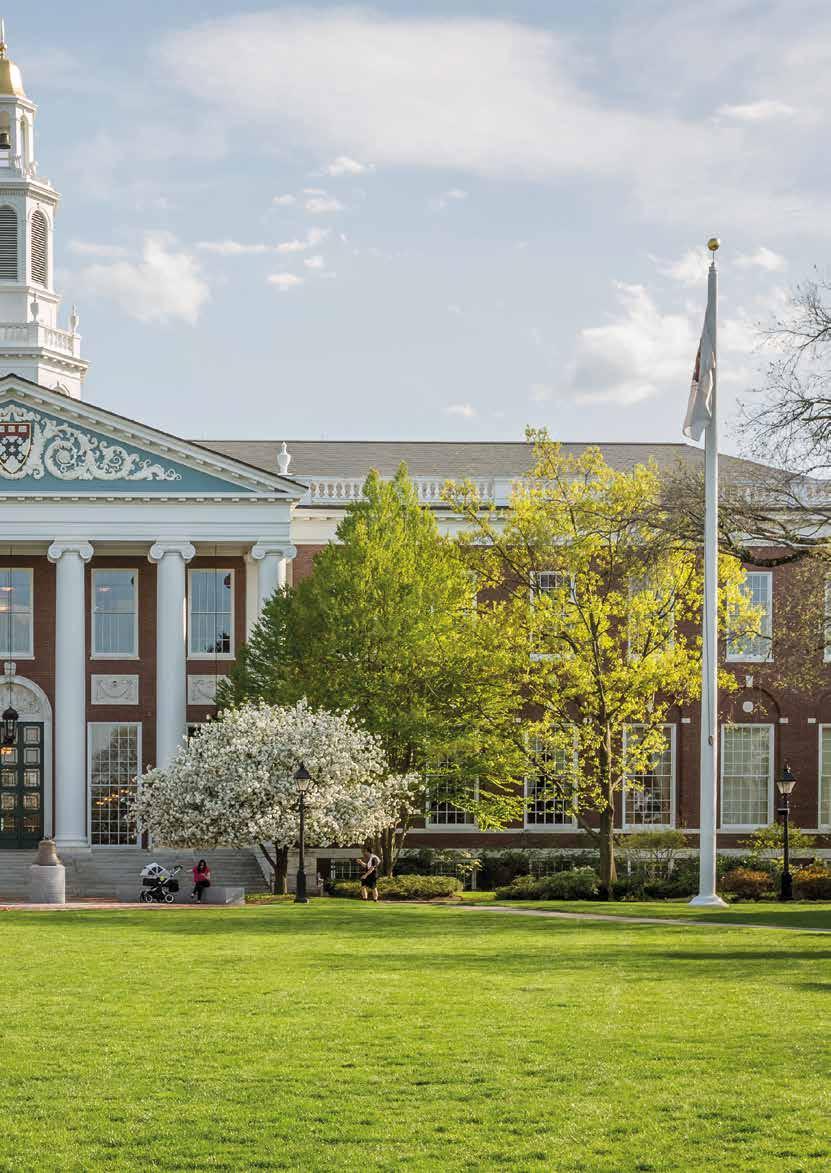

Published 4 years ago, The Promise, a pledge that Scotland’s children and young people will grow up loved, safe, and respected.
As we near the halfway point of The Promise, Who Cares? Scotland has gathered information from 32 local authorities to create a report*, the first in a series of five to be published throughout 2024, to check the progression of the pledge. The report reflects the experiences of around 1600 Care Experienced people, and although Scotland is not on track, progress has been made in some areas.
We split our research into five sections: Good Childhood, Whole

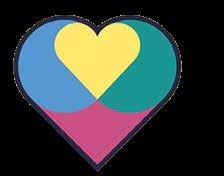
Family Support, Planning, Supporting the Workforce, and Building Capacity. Here’s what we found out.
There has been some progress in a number of areas. For example, the rights of brothers and sisters, The Promise showed that between 2017 and 2023, the number of brother and sister separations has dropped from roughly 70% (SCRA data) to around 25% (The Promise Scotland data). A positive for The Promise, however, our research showed that, through 14 local authorities, it was recorded that 97 groups of brothers and sisters have been separated for reasons other than safety.
In schools, Virtual School Head Teachers began in Scotland in 2018, and as of September 2023, 18 local authorities had them in post. 10 local authorities did not provide any data, so that number could be even higher.
With regard to restraint, two local authorities told us that they have recorded zero uses of restraint since the publication of The Promise, which shows that commitment to abolish it is indeed achievable.
Of the 32 local authorities that we asked, 22 responded positively to the question: “Are you able to demonstrate that your organisation is embedding de-stigmatising language and practices relating to Care Experienced people?”. This means 70% of local authorities told us that they were able to demonstrate that their organisation are tackling stigma, which is a key theme throughout The Promise, through their practice and use of language.
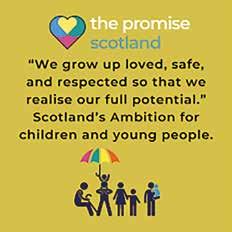
In short…No.
Although there have been some positives so far, it’s unlikely that Plan 21 -24 will be delivered in full before the deadline. During our research, we discovered that many of the key commitments of The Promise were either not being tracked, or more alarmingly, haven’t been put into practice.
There was also a lack of data in some areas where local authorities just didn’t respond.
The Promise Oversight Board, alongside the First Minister, has stated that they are on track to meet the promise by 2030. What is needed most is financial support, a clear route map, tangible actions, and dates for each local authority to work towards.
With Plan 21 – 24 failing to be delivered in full, we are holding out hope for Plan 25 –30 to be more successful.
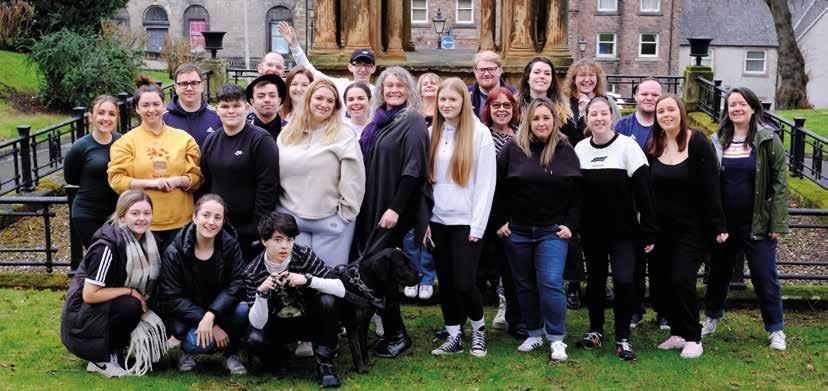
If you don’t know about our Empowered Voices Programme (EVP), it is part of our commitment to help the Care Experienced community learn vital campaigning, activism, and public speaking skills over the course of 3 residentials. We started it last year by recruiting our first cohort of 20 activists and inviting them to their first training weekend in Glasgow. Their second residential weekend took place back in February at the Stirling Youth Hostel for a weekend of confidence-building, learning, and fun!
Welcome, settling in, followed by a scavenger hunt where people could win prizes. Some of the prizes were good…others were a bit silly!
Fajitas for dinner
After dinner, our Policy Team taught our activists about building arguments,political and then there was time to chill and chat.

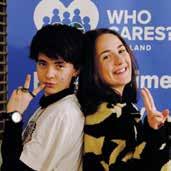
An early start but there were breakfast rolls and coffee to wake everyone up. The group got to know each other on a deeper level with a listening exercise where they discussed an important object to them, just like our Objects Podcast! Then there were workshops on public speaking, confidence building, an introduction to government, an introduction to campaigning and writing.
It was an action-packed day followed up with a relaxing yoga class after dinner for those who wanted to join in, then bingo and dancing in the lounge!
We are currently recruiting the next group of Care Experienced people who would like to take part in our Empowered Voices Training Programme. Training will take place over three weekends during the year, with the opportunity for further learning on an ad hoc basis. The deadline to apply is the 31st of July. Find out more and apply here.
Sunday was a bit more chilled out, with a longer lie.
Breakfast was followed by a media workshop with our Campaigns Coordinator, Melissa where participants learned about the reliability of media and how to spot fake news.
Then to finish off everyone took part in our Desert Debate, designed to challenge participants to think on their feet and practice their debating skills.


very quarter we send out a digital newsletter called Newsflash to our members. However, we know that not all of our members will have an email account to access the internet. That’s why we are including a round up of important headlines from the
Your two newly elected MSYPs Michael and Lauren began their term on 1st February, and will remain in post until 2025.
If you’d like to get in touch with them, you can do so by emailing lauren. barrie.msyp@sypmail.org.uk or michael.archibald.msyp@sypmail. org.uk
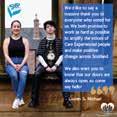
last couple of months and sharing them again, here in SpeakOut, so you don’t miss out.
If you’re signed up but haven’t been receiving Newsflash, just email membership@whocaresscotland. org and we’ll update your details.
Who Cares? Scotland welcomes the passing of the Children (Care and Justice) (Scotland) Bill, as it pushes back against the criminalisation of Care Experienced young people and instead emphasises the need for early intervention and support.

In March we announced a new project in partnership with the National Theatre Scotland. Led by playwright, Nicola McCartney, Caring Scotland will document the lives and experiences of the Care Experienced community in Scotland. We are grateful to Heritage Fund UK and the National Lottery players for their support. More information on how you can get involved coming soon!
At the end of March, 34 of our members were welcomed to the Scottish Parliament by the Education, Children and Young People Committee to talk about The Promise and share their experiences. There were lots of powerful and engaging conversations. Thank you to our members who took part and thank you to the committee for taking the time to listen.

Huge thank you to Ewan at @ STVstudios for showing our member Ethan around the studios this morning. Ethan is interested in journalism, and really enjoyed the visit!

Thank you to everyone who took part in the Glasgow Kiltwalk for us! We couldn’t do the work we do without you.
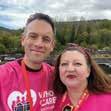

We recently ran a Housing Survey where we asked you how accessing housing could be better for Care Experienced people. Thank you to everyone who took the time to fill it in. We will use this data on top of what we know through our advocacy work to produce a paper which we will share with Scottish Government.
Nominations for our first ever Corporate Parenting Awards are open until Friday 31st May! We wanted to recognise and celebrate a decade of transformative and innovative practice and most importantly how this has benefited Care Experienced people. There are a wide variety of award categories and for most of the awards, anyone can nominate a Corporate Parenting organisation, although there is one category specifically for Care Experienced people.

Check out the big events we’ve got coming up for you for the rest of the year!
Emergency Services

Engagement Event 16+
Friday 24th May
Scottish Fire and Rescue Service
Cambuslang
Headquarters
This is an opportunity to gain an understanding of the emergency services and learn more about the wide range of roles that exist across all services.

The Care Cup 25th July
Glasgow
Our annual football tournament for Care Experienced players of all ages and abilities.

Time to Shine
Saturday 19th October
Glasgow
A themed family friendly festival for Care Experienced young people and their supporters to celebrate Care Experienced Week.

Refugee Week Party
Saturday 22nd June

AP Venues, Glasgow
We’re collaborating with Standing Tall & The Scottish Guardianship Service to bring you an afternoon of music and fun to celebrate Refugee Week.

Summer Camp 5th - 9th August
Auchengillan Outdoor Centre 2 camps, 2 nights each - one for 12-15 year olds and one for 16+ Come and have the best summer ever with us!

AGM & Love Rally
Saturday 26th October
Glasgow
Members have their say at our Annual General Meeting and then join the masses to march for a lifetime of love for Care Experienced people.
Care Family Christmas
Christmas Day
Glasgow
An extra special Christmas dinner for Care Experienced people and their families.
We hope to see as many of you as possible at one of our events. We try to make events as accessible as possible but if there are any barriers to attending that you think we should know about please get in touch by emailing events@whocaresscotland.org or messaging us on socials and we will do our best to support you.
To mark International Women’s Day this year, Holly decided to speak to some of women in her residential home, to get their views on some of the issues they face as women. Through her chats with Pauline, Carolanne, Ash, Linda and one of her fellow residents, Holly shows that everybody’s voice matters.



What do you like about cleaning?

P: I like making sure everything is nice and clean for the young people that live here, I always like to make sure they have clean bedsheets and towels. I like the house to be nice and clean for everyone, this is healthy.
Why do you think more women do cleaning jobs than men?
P: It’s always been that way, but it is changing and that is good. When I grew up woman would stay at home to cook and clean while the men went to work, but that is changing thankfully.
Is it hard living in a Children’s House where it is mixed boys and girls?
YP: Yes, it can be, especially when there are more boys than me and I feel like the only girl or one of few girls.
What are the good things about living in a mixed children’s house?
YP: Oh no I much prefer it mixed, all girls would be hard work as we would fall out all the time, boys don’t argue as much. I like the variety of people.
What do you like about working in an office in a children’s House?
C: The variety. It isn’t like a boring, standard office. I like getting to spend time with the young people and there are never two days the same in my job because of the unique interactions with everyone here.
Do you think there are more males or females working in admin?
C: It is mostly female admin workers I deal with, and my bosses are female also. Years ago, the bosses would have been males and females would have been typists. I took this job after my children were born, so I could be at home more and not stress the same as I did in my manager roles.

Do you like working with young people?
A: Yes, I love my job, it can be so different each day and it is certainly a rewarding job when I get to see young people happy and doing well.
Is it hard to work alongside male colleagues? What are some of the myths and stereotypes?
A: No, it isn’t hard but I know what you mean, sometimes people might expect that males would take young people to the football and females would do the cooking but actually all of this depends on your skills and relationships with the young people.

Do you get intimidated as a female manager?
L: My view on this is very different as I don’t feel like I am in a ‘man’s world’, things are very different these days to when I started working in the Care profession. I am not the type of person to be intimidated by males or females. I know my strengths and I am aware that at meetings or going to court where I need to share my views and professional opinions that these views lead to very important decisions being made and at times this can be daunting, but this is not to do with me being a female. I am always true to myself, no matter who I am surrounded by.
The Lighting Thief- the Percy Jackson musical is one of my favourite musicals, so when I found out my first year HND show with Glasgow Kelvin College was The Lighting Thief I was so excited. The main theme of the show is finding out who you are and finding a place where you belong. The musical is based on the Percy Jackson books so anyone who likes the books I think would like the show.
I was excited to do my first show of HND especially when it took me a little longer to get into HND than my friends as I wasn’t able to achieve my national 5 English before leaving school. After finishing level 6 musical theatre I went onto pass my national 5 English with a C, even though this was a few years later than most people my age it is one of my greatest achievements, as having it really helps with my written work for HND.
Musical theatre has always been something I wanted to go on to study, as I’ve always had a passion for the arts, especially because I’ve struggled academically with subjects like math and English but with drama and dance and music, everything seemed to click and I learned very quickly in those lessons.

and I was given the part of Katie Gardener, which I felt suited me well. The rehearsal process was long and we were rehearsing all day three times a week and I also had my drama club at night twice a week. Even though it was long, it was also a lot of fun and I basically got to listen to my favourite soundtrack every day. Some of my favourite songs to block during rehearsal were another terrible, day campfire song. D.O.A was my favourite dance routine as it has a high energy routine.
My favourite day of rehearsals was the day we went into the theatre for the first time. We did this the week before the show once we started to rehearse. I was starting to get nervous but I always do a week before the show but I was also excited. Just before the show I had the best time and on stage during the shows and it went so quickly. We did 4 shows
I was so happy when the Glasgow Drop In said that they could come to see me, and it was so good to see them after the show. They gave me a lovely bunch of flowers. I am so glad that I have the support of Who Cares? Scotland in what I do.
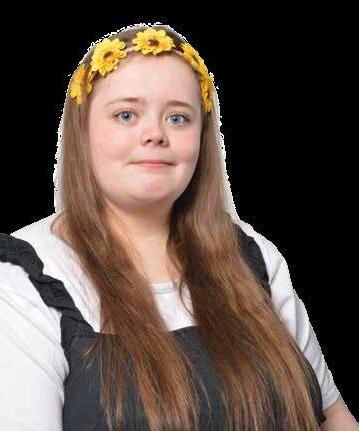
We started rehearsing for the show in November

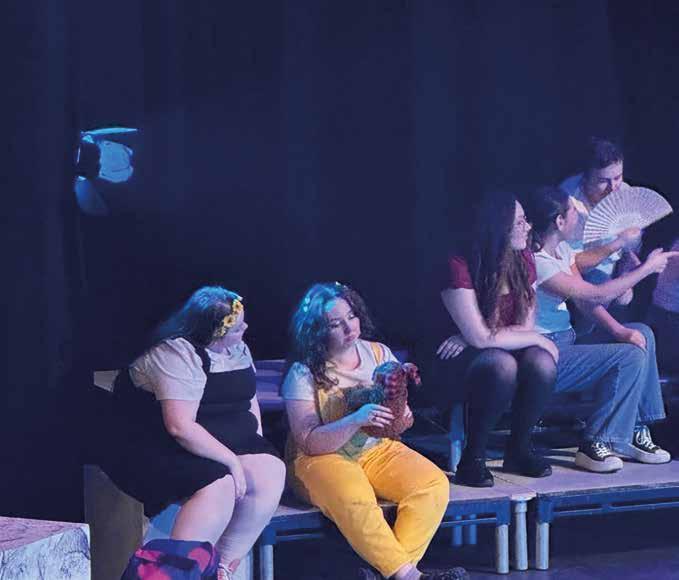
Now that the show is done I am looking forward to future shows, like the two shows I will have in second year which will be later this year and into next year. Once I finish at Kelvin I hope to complete my Bachelor of Arts in musical theatre at either Kelvin, New College Lanarkshire or the Royal Conservatoire of Scotland.
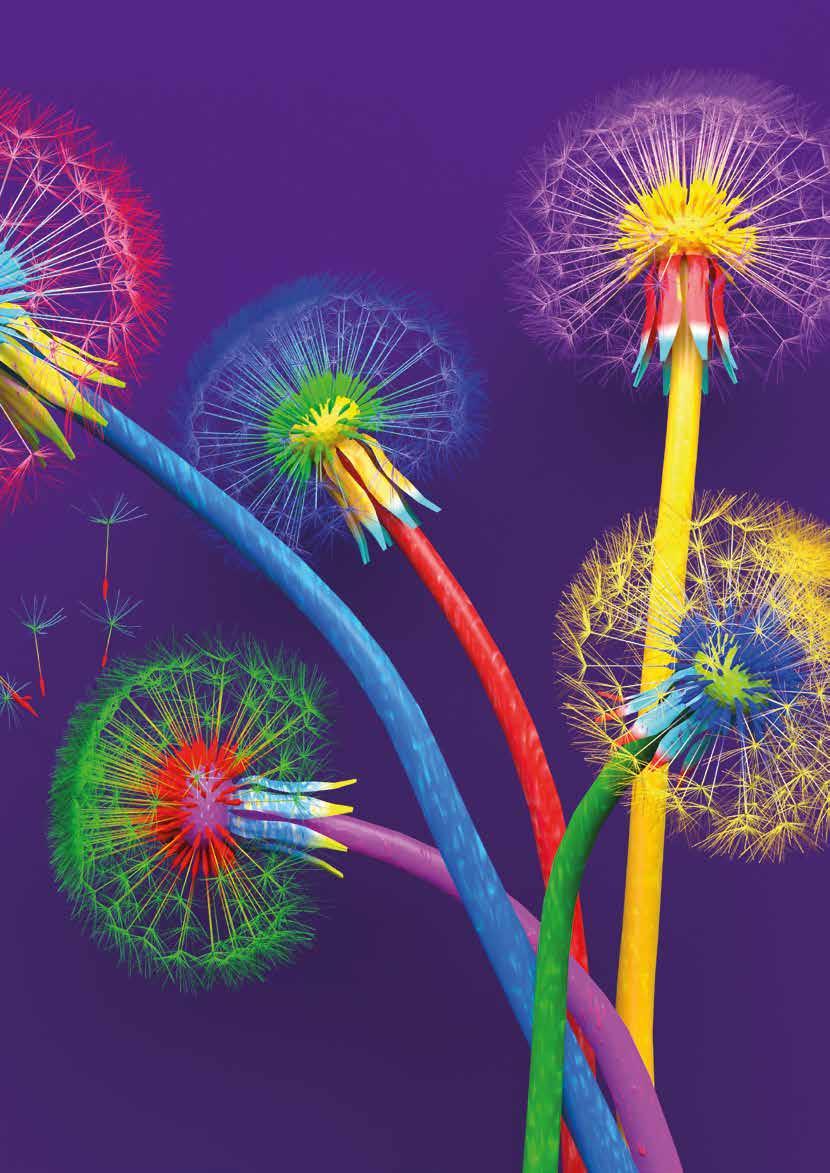
Once you have completed the IN IT TO WIN IT page please return it to us by Thursday 29th August 2024 to be in with a chance of winning a £25 voucher of your choice. You can do this by giving the page to your Who Cares? Scotland APW, emailing a photo of your entry to membership@whocaresscotland.org or DMing us it on social media. You can also post it to 40 Wellington St, Glasgow, G2 6HJ. Good luck!

To continue our CEHM celebrations we’ve made our quiz pages all about things from our CEHM article on pages (16-17). You will find all the clues you need there!



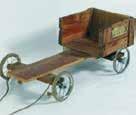



To celebrate awards season, we’ve put together a word search looking at some of the biggest award shows across film and music. Can you spot your favourite artist, song film or movie star? There are 17 hidden!




Sian Wild APW Shetland 07599044615
Karen Monkman APW Orkney 07849 087 753
James Cameron Coordinator 07583 050 179
Jantine van Loon APW Highland 07850 852 708
Sarah Herbert APW Kibble and East Dunbartonshire 07849 086 681
Johanna Kaz APW Stirling and Seamab 07971 474 168
Beth Simpson APW (SP) West Dunbartonshire 07787 560 467
Jemma Kane Advocacy Coordinator (Kibble) 07540 823 286
Sherril Wright
APW Falkirk and Clackmannanshire (mat cover) 07849 090 688
Caroline Ironside Development Officer Communities that Care (Clacks) 07849 084996
Mary Bateman APW Falkirk and Stirling 07739 078 247
Morag Cantwell Advocacy Coordinator (Forth Valley) 07523 512 612
Sharon Edwards APW West Lothian 07779 451 117
Fiona Simpson APW Glasgow 07787 560 472
Kim Campbell APW Glasgow 07712 870 343
Sheryl Kay APW South Ayrshire 07738 195 692
Lynne Williamson APW Aberdeenshire 07712 869 576
Paul Lamont APW Dundee 07787436681
Jessica Varney APW Rossie YP Trust/CHS Tayside 07712 866 835
Ashley Donaldson APW North East 07743 936 550
Ewan Duthie APW North East Peripatetic 07825 269 678
Abigail Pass APW Angus 07810 570 222
Louise Murdoch APW South Lanarkshire 07849 090 684
Elle Scott APW North Lanarkshire (Mat Cover) 07849 086 188
Mags Corr APW North Lanarkshire 07841033018
Jacqueline McLachlan APW North Lanarkshire 07841033020
Lynne Morris South Lanarkshire 07786 068 138
Laura Campbell North Lan Development Officer 07849086191
Sophie Edwards APW West Lothian 07849 086432
Rachel Outram APW West Lothian 07985 089 947
Sorcha Tams APW Falkirk & Clackmannanshire, 07598 580 320
Joanne Hunter Development Officer (Clackmannanshire) 07715 312 015
Denise McMillan APW East Ayrshire 07932 101 076
Lindsay Cook APW East Renfrewshire 07973 801 709
Corran Russell Development
Officer South West 07849 087 461
Pamela Hynes APW Argyll & Bute, Crossreach 07739 078 244
Heather Nailard APW Argyll & Bute 07769 325 000
Claire Campbell Lifelong Advocate 0330 107 7540
Ray MacLean Advocacy Coordinator North Lanarkshire 07523 512 800
Michelle McAtear APW South Lanarkshire 07841033107
Lisa Allan APW North Lanarkshire 07790341265
Ewen Kerr Advocacy Coordinator South Lanarkshire 07970515442
Brenda Ann Murphy
APW North Lanarkshire 07849 083 141
Kerry Connor APW North Lanarkshire 07841 033 019
Russell Stewart APW North Lanarkshire 07849 083 248
Josh Gilbert APW Edinburgh & Scottish Borders (Mat Cover) 07849 083 003
Kieran Platts Development Officer Edinburgh 07841 033 104
Carolelynne Cameron Lifelong Advocate 07748 145 955
Caroline Breen APW Renfrewshire 07394 418 025
Donald Walker Advocacy & Participation Coordinator 07712 865 958
Sophie Morris APW East Lothian 07985 046739
Ellie Crozier APW Edinburgh 07712 870 390
Lisa Fleming APW Midlothian 07712 872 078
Keira Kerracher APW Edinburgh & Sycamore 07849 083 003